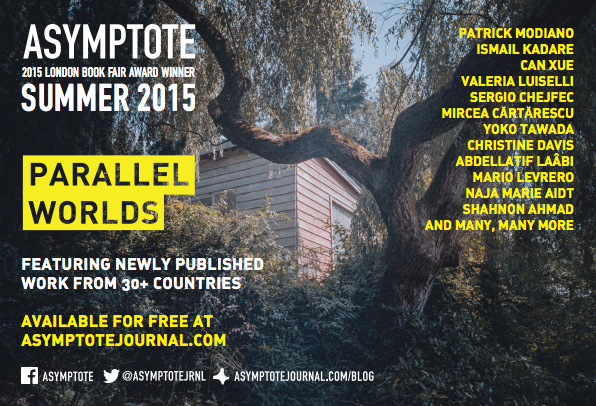Monthly Archives: July 2015
Weekly News Roundup, 31st July 2015: Book the Booker & Submit to Our Emerging Translators Contest

This week's literary highlights from across the world
Bullet in My Mother Tongue: An Interview with Alisa Ganieva

Alisa Ganieva on translation, perfunctory patriotism, and literary hoaxes.
Last month, Alisa Ganieva was in Iowa City to teach global literature in English and the Russian-language workshop of the Russia-Arabic session of Between the Lines, a summer program for writers between the ages of 16 and 19 who spend two weeks in shared cultural and artistic dialogue about the literary traditions of their home countries. I sat down with Alisa to discuss her rise to literary fame and the new translation of her novel, The Mountain and the Wall, out this month with Deep Vellum Publishing.
At 24, you won the prestigious Russian literary Debut Prize of 2009 for your novella, Salaam, Dalgat!, which you wrote under a male nom-de-plume. How did you choose “Gulla Khirachev” for your pseudonym?
My goal was to hint those from Dagestan that I’m not a real author. That’s why I took a real name, “Gulla,” which means “bullet” in my mother tongue—in Avar language—but has not been used for many years. I found out there is actually an old man called Gulla, but he might be the only man with this name. So when my Gulla Khirachev appeared, many of those in Dagestan—journalists and writers—guessed that it must be a pseudonym, and they began trying to find out who it was. They guessed there must be a person, a young man, who lives in Makhachkala, since he knows it so well. They argued with each other and named different candidates, but always missed.
So you meant for the name “Gulla Khirachev” to be transparent as a pseudonym?
Yes, so the name means “bullet,” and the lexical root of this surname means “darling” in my native language. So it’s something piercing, but at the same time, it’s something . . . nonaggressive. READ MORE…
Thirst is the Force of Gravity: Ferreira Gullar’s “Dirty Poem” in Review
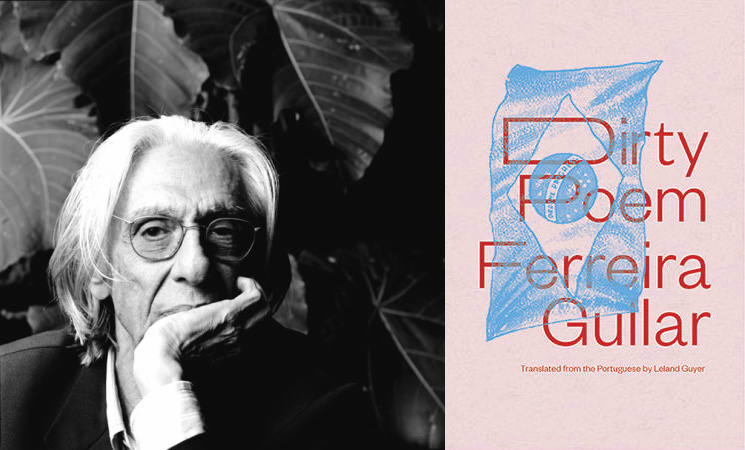
"The poem’s necessity makes me bitter."
Much has already been said about exile. Losing a country or losing a home is “like death but without death’s ultimate mercy,” “a kind of ripping apart,” “a condition of terminal loss.” Ferreira Gullar wrote Dirty Poem (newly translated by Leland Guyer for New Directions) in 1975 in Buenos Aires, while in political exile from the Brazilian dictatorship. Like the author himself, the speaker of Dirty Poem imagines his return home, an attempt to recover the São Luís do Maranhão of his childhood.
The opening stanzas of this 80-page poem are filled with gaiety and fond memories of youth in the northeast region of Brazil. But just a few pages later, the speaker “preaches subversion of political order” and is banished to Argentina. In a fine translation from the Portuguese, Leland Guyer captures the richness of language of Gullar’s poetry—from local idioms to the language of displacement. The book culminates in saudade, alienation, and decay. READ MORE…
Translation Tuesday: Poems by Irma Pineda
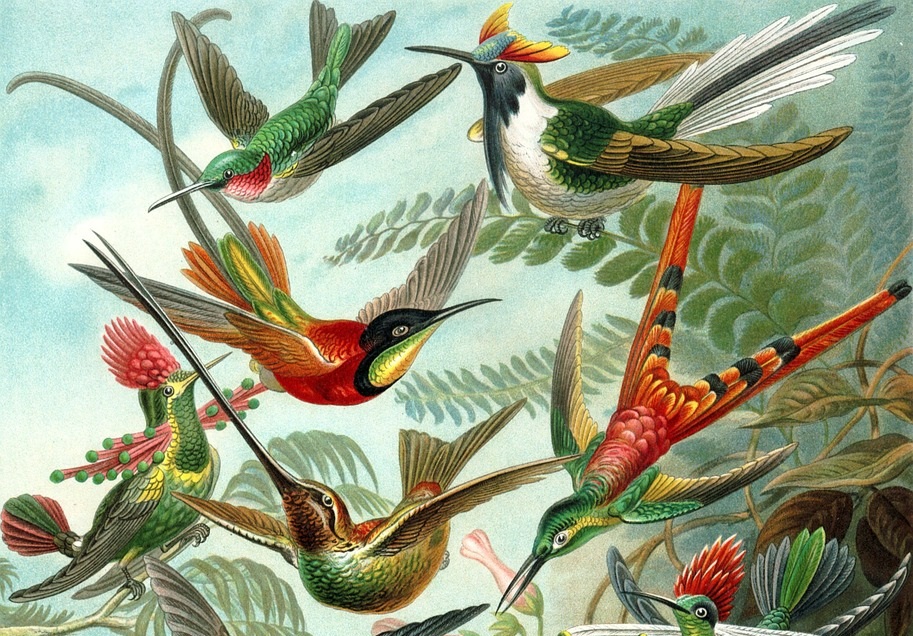
Love / my belly is now a dry tree / that once wanted to bloom stars for your nights.
On waking from your death
here you will see me
awaiting your hummingbird’s return
transformed into an old tree.
Al despertar de tu muerte
me verás aquí
convertido en un árbol viejo
que espera tu retorno de colibrí.
Dxi guibáni xquendagutilú
rari’ nga suuyu’
naa ma’ naca’ ti yaga yooxho’
cabeza’ guibiguetu’ sica ti biulú.
Making Narrative Witness: A Caracas-Sarajevo Collaboration
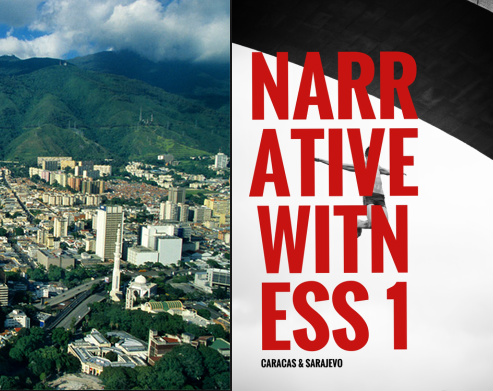
A revolutionary collaboration spanning countries, languages, and memories
THE SCENE
The scene is an online video meeting. (Does that qualify as a scene?) In it are several Venezuelan writers and photographers gathered in a classroom in Caracas (all men but one, though not everyone is present) and their counterparts in and around Sarajevo, Bosnia and Herzegovina, gathered mostly in twos and threes at laptops in apartments (all women but two; everyone is present).
A couple of Caracas photographers also tune in from what appear to be their flats. One Bosnian is in the town of Bihać. A Croatian writer from the Sarajevo group joins from Spain.
The Venezuelans in the classroom are having technical difficulties with their audio, and people move close to the room’s single computer to be heard. We make introductions. A few jokes. We lay out our plans. At least one Sarajevan, a redhead perched on a sofa, enjoys a cigarette.
Weekly News Roundup, 24th July 2015: Americans Make Up Things

This week's literary highlights from across the world
Happy Friday, Asymptote pals! We’re one-and-a-half weeks past the release of our latest issue and it’s a stunner—including dazzling superstar names like Ismail Kudare, Patrick Modiano, and Valeria Luiselli, among so many others. Blog co-editor Katrine even wrote up a little feature on a personal favorite of hers (check it out here!). Or you could swing back with the five must-reads we blog team recommended at issue launch. Or you could close your eyes and click at random. You’re sure to land on a gold mine either way. READ MORE…
July Issue Highlight: On Rainbows and Resistance
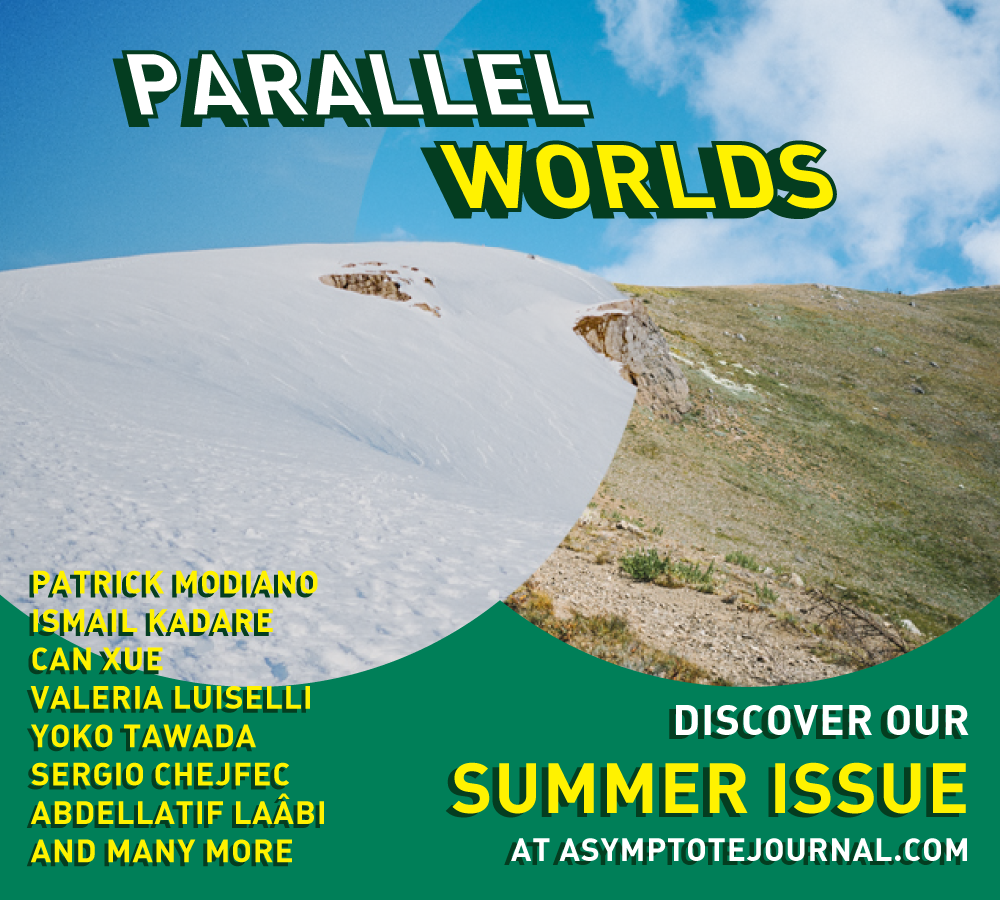
Blog editor Katrine Øgaard Jensen recommends one of her favorite reads from our brand new issue
In case you’re hungry for more recommendations after reading the blog’s 5 Must-Read Pieces from our New July Issue, here’s a write-up about something that’s stuck with me since its publication last Wednesday.
In our latest issue of Asymptote, I was particularly excited to discover three poems by Turkish Gökçenur Ç, author of six poetry collections and Turkish translator of Wallace Stevens, Paul Auster, and Ursula K. Le Guin. I was drawn in by Gökçenur Ç’s first poem, “We’re in the World, So Are Words, How Nice that We’re All Here,” in which intriguingly short, self-contained thoughts such as “Morning is hissing like an empty tap” and “The shadow of a hawk strikes your shadow, / neither you nor the hawk is aware of this” make up the entire piece. This is also the format of the third poem, “I Watch with Love Like a Stupid Student,” which wraps up the three poems nicely.
Working Title: Conclusive Evidence
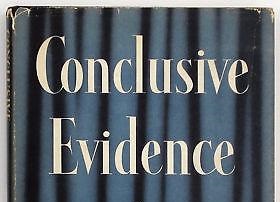
Nabokov was always interested in the multilingual experience, both in writing and speech.
Vladimir Nabokov once said in an interview: “I don’t think that an artist should bother about his audience. His best audience is the person he sees in his shaving mirror every morning.” There are many ways to interpret this, especially when the artist writes in several languages, as Nabokov famously did, having switched to English in his early forties, but never completely abandoning his native Russian. Did Nabokov really only ever write for himself? The jury may still be out, but this much is clear: his one-man audience was more demanding than most.
Speak, Memory, Nabokov’s memoir covering the first four decades of his life, up to his emigration to the U.S. in 1940, was written in English and initially published in America as Conclusive Evidence. To his British publisher Nabokov suggested a different title, Speak, Mnemosyne, which was rejected on the grounds that “little old ladies would not want to ask for a book whose title they could not pronounce.” Yet another idea was The Anthemion, “but nobody liked it; so we finally settled for Speak, Memory.” Mnemosyne, the Greek goddess of memory, makes frequent appearances in all the book’s versions, including the authorial Russian one, produced under the title Другие берега (Other Shores). In his introduction to the Russian edition Nabokov explains his decision to rewrite the book significantly by the drawbacks he noticed when he first embarked on the “mad enterprise” of translating Conclusive Evidence—the drawbacks that would make an exact translation “a caricature of Mnemosyne.”
Translation Tuesday: “Barefoot Through the Temple” by Albert Ostermaier
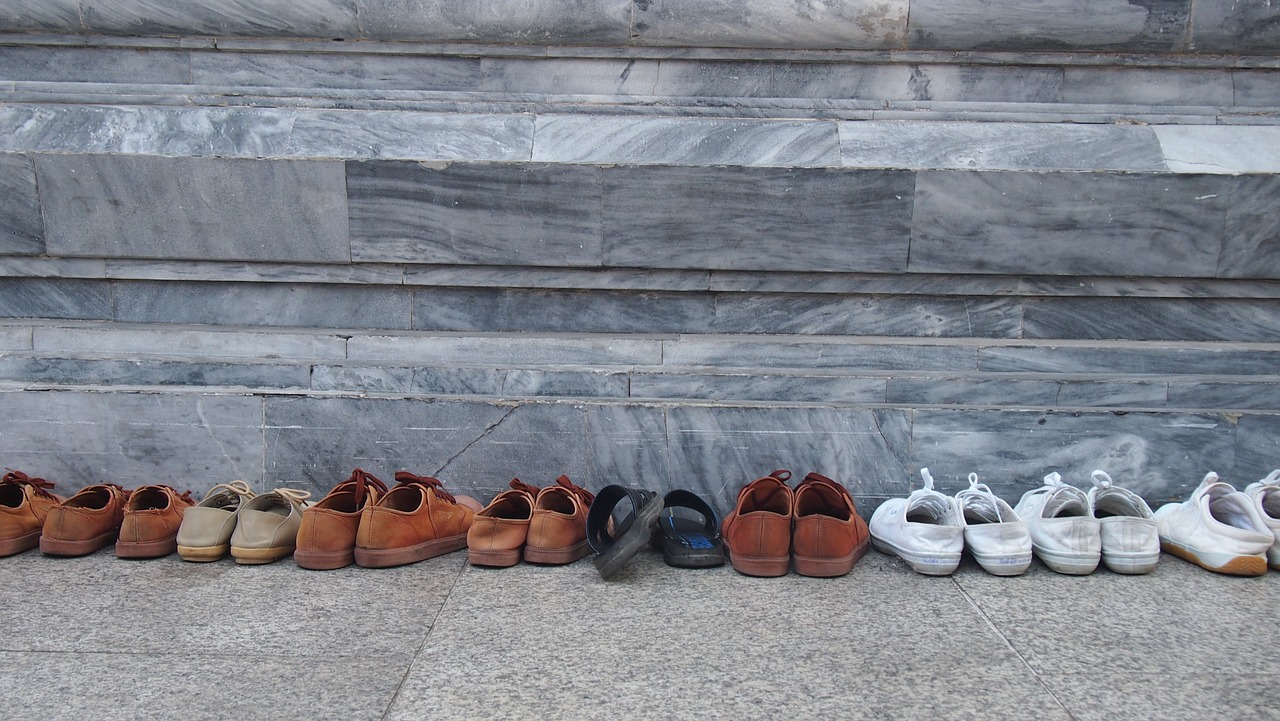
a sticky pressure / on my soles crusted / animal blood ash red blossoms / charred at the edges
nice shoes he pointed to
my shoes i took them
off i know you he smiled
you’re a movie star i
smiled back camera
switched on he rolled his
eyes you can take a
picture of me i counted
the money out he put the
notes in his breast pocket
bowed briefly &
took me by the hand
where do you come from
READ MORE…
What’s Foreign and Familiar: Part I

Writer Yuen Sin reflects on a childhood and adulthood spent finding herself between languages
“What is the Burmese word for cockroach (kar-chwa)?”
Auntie Moe Moe interrogated in a mixture of Mandarin and Hokkien dialect. My brother glanced at me haplessly as I rummaged through the repository of my memory, biting my lips as my live-in domestic helper, nanny, and aunt tapped her feet impatiently.
There it was. “Po heart.”
The romanization under my childish scrawl appeared in my head, and I triumphantly recited the two syllables hiding beneath my tongue. READ MORE…
Weekly News Roundup, 17th July 2015: EXTRA! EXTRA!

This week's literary highlights from across the world
It’s Friday, aren’t you glad? We’re glad. We’re especially glad because of the fresh-off-the-presses July issue we released this Wednesday! Don’t know where to start? You can check up on the blog’s helpful listicle highlighting just five must-reads from the July issue. Or you could simply take a gander, as there’s no way you can go wrong: we’ve got some heavy hitters this time around (like Ismail Kudare, Can Xue, Cia Rinne, and Patrick Modiano), so even blindfolded, you’re sure to land a home run—especially in this issue’s super-sparkly multilingual feature. READ MORE…
In Review: “Thought Flights” by Robert Musil

P. T. Smith reviews a newly translated collection of short pieces by Robert Musil
At first appearance, the newly translated collection of short pieces by Robert Musil, titled Thought Flights by translator Genese Grill (Contra Mundum Press), seems at odds with the writer’s reputation. After all, he is most famous for the massive, unfinished Man Without Qualities. Why would he take time away from that project he was so dedicated to so he could write pieces of fiction only a couple pages long, essays about whether the crawl stroke is an art or a science, and satirical fragments like “War Diary of a Flea”? And considering all that Musil articulated about society, gender, philosophy, art, etc. in Man Without Qualities, is there reason to read this instead of, or after, that? The quickest way to answer both questions is hinted at by Grill in her introduction. The first: for Musil to maintain his sanity by taking breaks. The second: if you admire both the intellect and aesthetics of Musil and the serious play that Walser brought to his feuilleton, this is a chance to see what comes about when those two styles are combined.
Translation Tuesday: “Spring’s Doings” by Orhan Veli Kanık
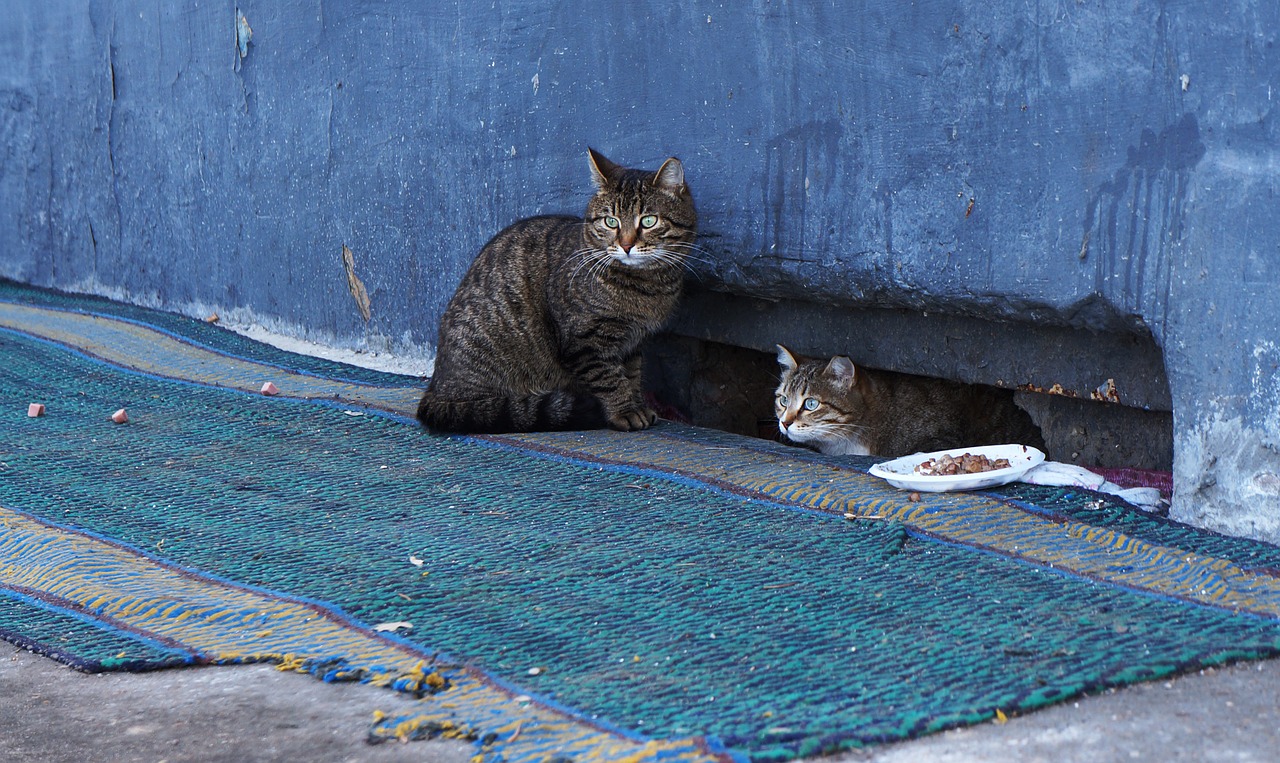
Just a few days ago, I overheard a woman. 'In my opinion, poetry,' she said, 'is a white automobile.'
I wanted to write something. I picked up paper and pen, and I walked out to the terrace. What I call terrace is on the top floor of the hotel where I live. The weather was spitefully tempting. A warm March sun penetrating all the way to your bones. Weather like this makes many a person happy at the end of winter. What is happiness? Has everyone in the world known it? Questions like this can be debated at length. Who knows, maybe if I did debate this one, I would take back what I said. So what if I imagine myself to be happy every once in a while? Since it seems certain that I won’t be getting my share of great fortune, I’ll make do with whatever comes my way.

